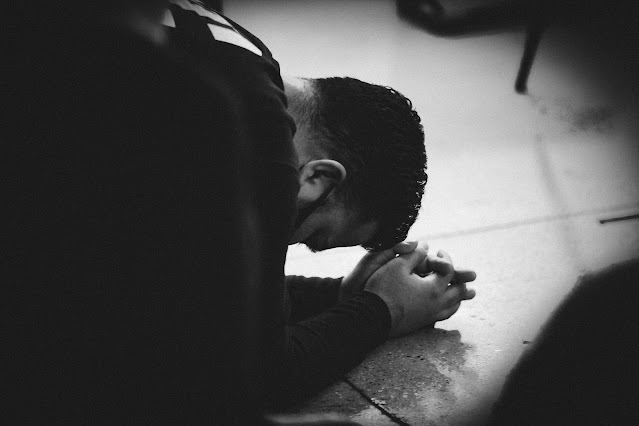A Call to Prayer: From Now Until Easter
Tomorrow begins a time of year that many Christians over the centuries have set apart as a concentrated period of prayer and repentance and seeking the Lord. (I'm not going to get into evangelical debates about Lent—my point in this post stands whether you're always looking for something to give up for Lent or whether you block your ears at every sound of that word.) In these next weeks we're looking forward, with eagerness and anticipation, to Easter and the celebration of Christ's triumph over death, hell, sin and the devil. That celebration is coming. But in the meantime, let's pray.
We want to see the fruit of Christ's triumph all around us. We want to see the Holy Spirit poured out to refresh and revive, to convict and the draw to Christ, to save and to sanctify and to empower. We want to see people all around us come to know that newness of life in the Risen Christ (and we want to know more of it ourselves). So why not commit ourselves to prayer for these next weeks for such a mighty outpouring—prayer that this Easter we would not only be celebrating during a church service on a Sunday morning, but caught up in the wonder and the power and the glory of the Risen Christ as He pours out His Holy Spirit more and more upon His people and floods the dry ground with His presence.
I've written in the last few posts about people in the past who prayed for revival. But they didn't just pray haphazardly. They committed themselves to prayer. They set aside time—and lots of it—to pray for revival. Let's not just think that it would be good to get round to praying at some stage, when we've got some more time. Let's set time aside. Let's make time. Let's commit ourselves, not just to a one-off prayer meeting, but to weeks of prayer.
It just so happens that as this call to prayer for revival is stirring, that old season of prayer is about to begin. It's not about the date on the church calendar—that is simply the good providence of God. It's about committing ourselves now to protracted prayer, and Easter gives us a good goal.
Now, setting a timescale for prayer doesn't mean telling God when to answer. Back in 1906, William Seymour and some others were seeking the Lord for an outpouring of His Spirit in Los Angeles. So they began to pray together. Early in March they started to meet daily to pray in a house on Bonnie Bray Street. Then, on 6th April, they decided to set apart 10 days for prayer and fasting, which would end on Easter Sunday. Here was a small group committed to ten days of prayer and fasting, seeking the Lord for an outpouring of the Holy Spirit.
But the Lord didn't wait ten days. He didn't wait until their appointed time of prayer came to an end. On the third day the Holy Spirit began to fall. By the tenth day the crowds were so big that they'd had to abandon the house where they were meeting and find an empty church they could use, on Azusa Street.
Setting a timescale for prayer doesn't mean that God won't act any sooner. But it also doesn't guarantee that the answer we want will come by the end. The Lord might want to use that period of prayer to give us an even greater thirst or an even greater repentance. We cannot force revival. But we can give ourselves to seeking the Lord and let Him prepare us for what He is going to do.
Dr Martyn Lloyd-Jones saw the desperate need of the church in his day for revival. But he also knew that prayer is the only hope—and that prayer is a powerful hope.
Here is the vital question. Have you seen the desperate need of prayer—private prayer, corporate prayer, the prayer of the whole Church? I see no hope until individual members of the Church are praying daily for revival, meeting in one another's homes, meeting in groups amongst friends, meeting in churches, meeting anywhere you like, and praying with urgency and concentration for the shedding forth of the power of God ... There is no hope until we do. But the moment we do, hope enters.
(Martyn Lloyd-Jones)
We need, said the Doctor, to see ‘the futility of all our own efforts and endeavours, and the utter absolute need of prayer and seeking the power of God alone.’
When we see that, we will pray. And the more we pray, the more we will see it.
Duncan Campbell said, ‘We may organise. We may plan. But until we get on our faces and do business with a covenant-keeping God, we shall not see revival.’
So why not commit yourself to getting on your face and doing business with our covenant-keeping God for these next weeks until Easter. Plan to pray, and set aside time to pray. I'll be praying, so why not join me in prayer for the Lord to revive His work in the midst of the years.
Previous Posts:
